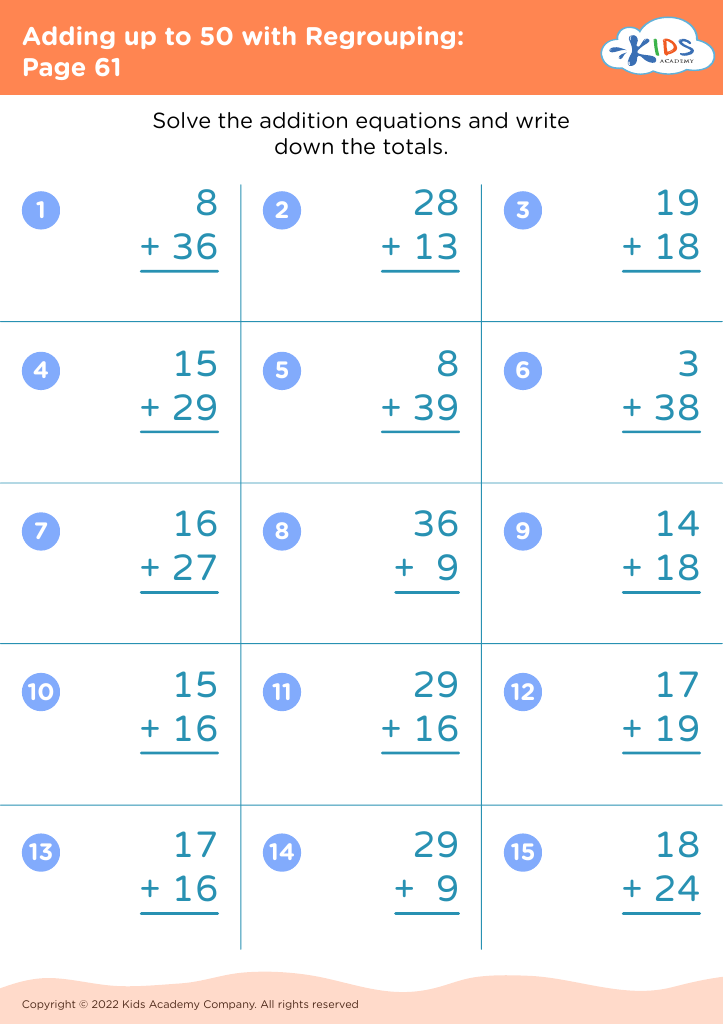Practice inference skills Addition & Subtraction Worksheets for 8-Year-Olds
3 filtered results
-
From - To
Enhance your child's mathematical abilities with our engaging Addition & Subtraction Worksheets specifically designed for 8-year-olds. These worksheets not only focus on basic arithmetic but also encourage the development of inference skills through critical thinking exercises. As children tackle various problem sets, they'll learn to interpret data and draw conclusions while reinforcing their understanding of addition and subtraction. Tailored for young learners, our resources make math enjoyable and interactive, ensuring a solid foundation for future concepts. Perfect for classroom use or home practice, these worksheets are a valuable tool in fostering mathematical confidence and fostering deeper cognitive skills. Start practicing today!
Practicing inference skills in addition and subtraction for 8-year-olds is crucial for their cognitive development and mathematical understanding. At this age, children transition from concrete operational thinking to more abstract reasoning. Enhancing their inference skills allows them to draw conclusions and make connections between numbers, leading to a deeper comprehension of mathematical concepts.
As children practice addition and subtraction, they learn to identify patterns, make predictions, and understand the relationships between numbers. This not only strengthens their arithmetic abilities but also fosters critical thinking and problem-solving skills. For instance, when presented with a math story problem, children must use inference skills to identify relevant information, deduce the necessary operations, and arrive at the correct answer.
Furthermore, strong inference skills contribute to greater confidence in tackling more complex mathematics in the future. When parents and teachers prioritize these skills, they equip children with tools for success not just in math, but across various subjects. Ultimately, nurturing inference skills in addition and subtraction lays a solid foundation for lifelong learning and enables children to approach challenges with a logical and analytical mindset. Consequently, parents and teachers play an essential role in guiding children in this developmental process.























